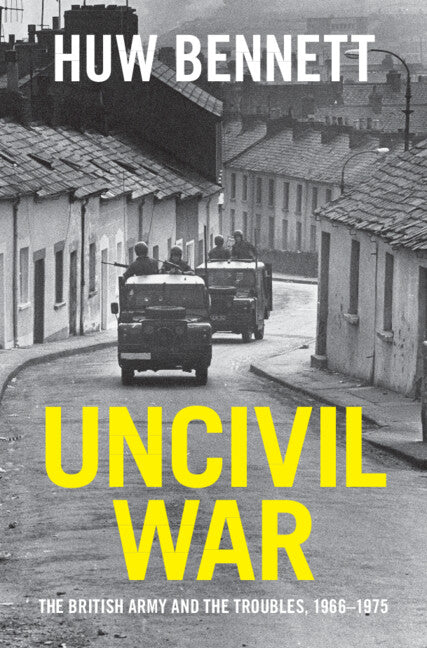Uncivil War:The British Army and the Troubles, 1966–1975
Author(s): Huw Bennett
Couldn't load pickup availability
🚚 Free UK delivery on books (excluding sale). T&Cs apply.
Free click & collect on all orders.
When Operation Banner was launched in 1969 civil war threatened to break out in Northern Ireland and spread over the Irish Sea. Uncivil War reveals the full story of how the British army acted to save Great Britain from disaster during the most violent phase of the Troubles but, in so doing, condemned the people of Northern Ireland to protracted, grinding conflict. Huw Bennett shows how the army's ambivalent response to loyalist violence undermined the prospects for peace and heightened Catholic distrust in the state. British strategy consistently underestimated community defence as a reason for people joining or supporting the IRA whilst senior commanders allowed the army to turn in on itself, hardening soldiers to the suffering of ordinary people. By 1975 military strategists considered the conflict unresolvable: the army could not convince Catholics or Protestants that it was there to protect them and settled instead for an unending war.
- Major new account of the Troubles drawing on extensive new evidence including government and regimental records as well as contemporary politicians, civil servants, journalists, paramilitaries and human rights activists
- Uncovers the interactions between the British Army, the IRA and loyalist paramilitary groups, shedding new light on British decision-making, the nature of the violence and why the conflict lasted so long
- Shows how military strategy succeeded in suppressing the level of violence but only by making the conflict more geographically dispersed, more sectarian in character, and by radicalising the participants to the point where endless war seemed inevitable
Share


